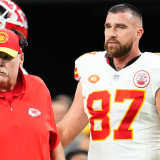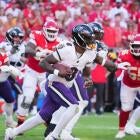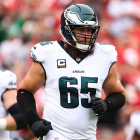Agent's Take: The top five financial takeaways from the 2017 NFL Draft
Here's why bowl games aren't worth it and why the Texans will continue to pay for Osweiler

The 2017 NFL Draft class will begin getting indoctrinated into NFL this weekend. Teams can hold their only three-day rookie minicamp during the first two weekends after the NFL draft.
Several draft picks will already be under contract before taking the field for minicamp. Those draft picks that don't sign deals prior to minicamp will participate under agreements which will pay them like their draft slot if any type of injury is sustained. Dante Fowler, Jr., the third overall pick in the 2015 draft, tore the ACL in his left knee during the Jaguars' first practice of rookie minicamp. He still received the same contract he would have gotten if healthy.
Very rarely does a draft pick refuse to participate in the offseason minicamps because his contract hasn't been completed since the inception of the rookie wage scale under the 2011 Collective Bargaining Agreement. Joey Bosa, the third overall pick in last year's draft, skipped the Chargers' mandatory minicamp in June because of a contract dispute after taking part in the rookie minicamp. He missed most of the preseason since the dispute wasn't resolved until late August.
Here are five financially-related thoughts and observations relating to the 2017 NFL draft.
Bowl games aren't worth it
Running backs Leonard Fournette and Christian McCaffrey received criticism last December for their decisions to sit out bowl games to avoid injury and get a head start on preparation for the NFL Draft. Fournette was taken fourth overall by the Jaguars. McCaffrey went eighth overall to the Panthers. The last time two running backs were top-10 picks was 2005.
Ronnie Brown, Cedric Benson and Cadillac Williams were selected second, fourth and fifth overall by the Dolphins, Bears and Buccaneers. Fournette and McCaffrey benefited from their main competition at running back, Florida State's Dalvin Cook and Oklahoma's Joe Mixon, having character concerns and off-field issues rather than being "clean" prospects. They were first-round talents drafted in the second round.
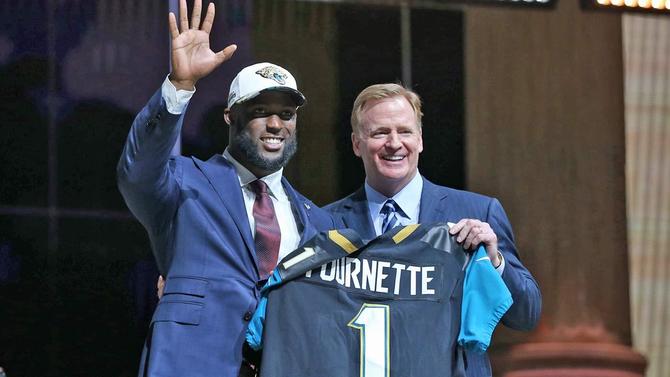
Expect more college players, particularly running backs, to follow the lead of Fournette and McCaffrey next year because skipping the bowl games didn't their hurt draft stock. Michigan tight end Jake Butt will serve as the latest cautionary tale for projected top picks. He tore the ACL in his right knee during the Orange Bowl. Instead of being selected on the second day of the draft, Butt dropped to the first pick in the fifth round (145th overall) on the third and final day of the draft.
Fortunately, Butt bought a loss of value insurance policy to help cushion his fall. According to ESPN's Darren Rovell, the policy calls for Butt to collect roughly $10,000 tax free for each pick he fell beginning in the middle of the third round for a total of $543,000.
The policy doesn't make up for the money Butt lost if he hadn't gotten hurt or didn't play in the Orange Bowl. His four-year deal will be worth approximately $2.7 million, with a $300,000 signing bonus as his only guaranteed money. If Butt had been the fifth tight end taken in the draft by the Bears in the second round instead of Adam Shaheen, his four-year contract would have been right around $5.9 million. The expected signing bonus for the 45th pick is about $250,000 less than the entire deal Butt should get. The guaranteed money is about 12 times more than Butt's projected $300,000 signing bonus.
The real cost of Brock Osweiler
Brock Osweiler was supposed to be Texans' quarterback for the foreseeable future when given a four-year, $72 million contract containing $37 million fully guaranteed in March 2016. Instead, he was arguably the NFL's worst 2016 free-agent signing; the Texans repeated as AFC South champions largely in spite of him.
Conventional wisdom suggested the Texans were going to be stuck with Osweiler this season because his fully guaranteed $16 million 2017 base salary made him untradeable. Surprisingly, the Browns took Osweiler off the Texans' hands in March for a 2018 second-round pick and a 2017 sixth-round pick (188th overall). A 2017 fourth-round pick (142nd overall) was acquired by the Texans from the Browns in the process.
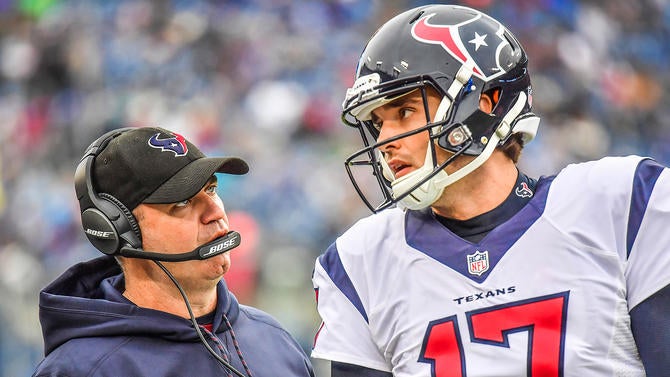
The Browns and Texans completed another trade during the first round of the draft. The Texans moved from 25th overall to the 12th pick in an attempt to solve their quarterback problem by taking Clemson's Deshaun Watson. The Browns picked up Houston's 2018 first-round pick to drop 13 draft slots.
The final tally for Houston's Osweiler mistake is pretty substantial. Cleveland owns Houston's first- and second-round picks in the 2018 draft. In addition to paying Osweiler $21 million for his one season in Houston, the difference in the contracts between the 12th and 25th picks is going to be approximately $3.5 million. The Texans will consider it a small price to pay if Watson pans out.
An exception to a declining RB market
Running back salaries reached a peak in 2012. The average of the top five running back contracts was approximately $10.85 million annually, and contained almost $26 million in guarantees where the average length was five years. LeSean McCoy is currently the NFL's highest-paid running back. The five-year contract he received in 2015 when the Eagles dealt him to the Bills is worth $40.05 million with $26.55 million in guarantees. Le'Veon Bell was franchised by the Steelers in March for $12.12 million.
This decline in running back salaries has created a financial quirk that doesn't exist with any other playing position. Running backs taken early in the draft are paid among the league's highest-paid ball carriers despite the rookie wage scale being designed to prevent it from happening.
Fournette, the fourth overall pick in the 2017 draft, will be the NFL's third highest-paid running back when he signs his contract with the Jaguars sometime this month or in June. His four-year contract will be in the neighborhood of $27 million. Fournette will have the most guaranteed money for an NFL running back since his contract will be fully guaranteed at signing.
The continuation of this trend when a running back is a top pick will depend on whether Bell can reset the market with a long-term deal. If Bell does, it will be easier for Cardinals running back David Johnson to eclipse McCoy's deal when he is eligible for a contract extension in 2018.
Where's the beef?
For the first time in modern NFL draft history, an offensive lineman wasn't selected in the first 15 picks. Tackle Garett Bolles was the first offensive lineman selected when the Broncos took him with the 20th overall pick. The only other first-round offensive lineman was tackle Ryan Ramczyk, who was taken 32nd overall by the Saints to close out the round.
The unprecedented free-agent spending spree in the trenches speaks volumes about the group of offensive lineman available in the draft. Kevin Zeitler establishing a new salary benchmark for offensive guards was expected. He received a five-year, $60 million contract from the Browns containing $31.5 million of guarantees.
The free-agent riches weren't reserved only for top-flight linemen. The Chargers gave Russell Okung a four-year, $53 million contract containing $25 million fully guaranteed at signing to make him the NFL's highest-paid offensive lineman with a $13.25 million average yearly salary. Matt Kalil landed a five-year, $55.5 million deal with $25 million of guarantees from the Panthers after missing most of the 2016 season because of a hip problem. By contrast, Bolles' four-year rookie deal should be approximately $11 million. The total value of Ramczyk's four-year deal should be less than $9 million. The Broncos and Saints will have a fifth-year option for Bolles and Ramczyk in 2021 that is expected to be in the $11.75 million neighborhood, provided the salary cap continues its growth rate of recent years.
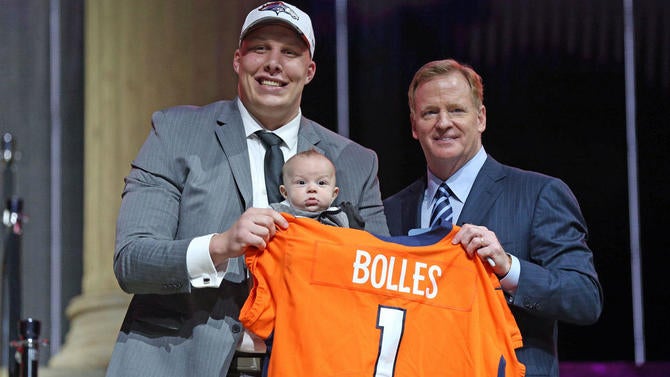
Choose your position wisely
Alabama cornerback Marlon Humphrey, the 16th overall pick by the Ravens, was smart not to follow in his dad's footsteps. His father, Bobby Humphrey, was an NFL running back taken by the Broncos in the first round of the 1989 NFL Supplemental Draft. Humphrey topped the 1,000 rushing-yard mark twice in his five NFL seasons.
The younger Humphrey will be in a much better position economically covering wide receivers than rushing for touchdowns should he live up to his draft position. There aren't running backs who make $10 million per year in the NFL anymore with the Vikings declining to pick up Adrian Peterson's option for the 2017 season. Le'Veon Bell could become one if he signs a long-term deal with the Steelers instead of playing on his $12.12 million franchise tag. Eleven cornerbacks are signed to long-term deals averaging at least $10 million per year.

